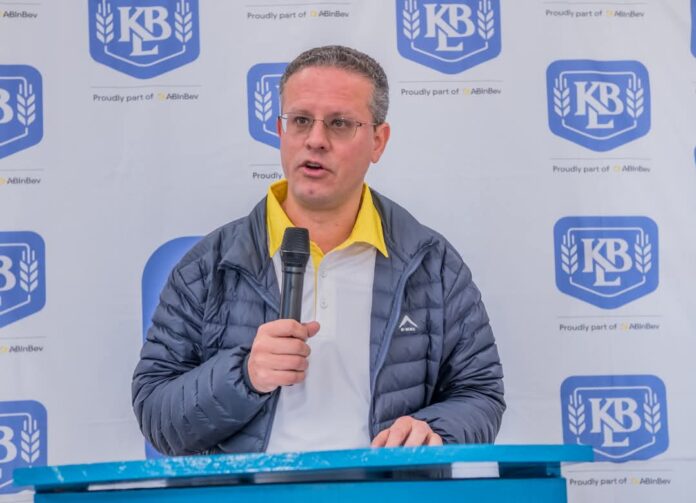Kgalagadi Breweries Limited (KBL) has voiced its support for the government’s focus on economic diversification and policy certainty, emphasizing their importance for private sector investment and job creation.
In a recent appearance on The Punchline Podcast with Lawrence Seretse, KBL Managing Director Carlos Bernitt shared insights on how companies like KBL can thrive while contributing to Botswana’s broader economic goals. He highlighted the need for a predictable policy environment, local sourcing opportunities, and the potential of the alcohol industry to stimulate trade and investment.
Bernitt stressed that long-term policy consistency, particularly around excise tax structures, is essential for businesses like KBL to continue investing in Botswana. While the alcohol industry is a significant contributor to government revenue, he noted that frequent tax adjustments can disrupt business planning, consumer spending, and affordability.
“We’re committed to investing in Botswana for the next 100 years, but to make that happen, we need a predictable regulatory environment that fosters growth, not just revenue collection,” said Bernitt.
Another focal point of KBL’s strategy is reducing its reliance on imported raw materials. Currently, 85% of the company’s ingredients are sourced internationally. However, Bernitt believes that with the right support, local farmers and suppliers could play a much larger role in KBL’s supply chain.
“Imagine a future where Botswana-grown sorghum becomes a staple ingredient in our production—this isn’t just about brewing beer; it’s about creating jobs and strengthening food security,” he noted.
KBL also reaffirmed its commitment to promoting responsible alcohol consumption. Through initiatives like Ja Easy, the company encourages moderate drinking habits, aligning its business operations with public health and safety standards while maintaining its economic contributions.
Looking ahead, Bernitt sees Botswana as having the potential to become a regional hub for beer manufacturing. However, realizing this vision will require stronger public-private collaboration, regulatory ease, infrastructure development, and investment incentives.
“As the private sector processes the implications of the budget speech, KBL remains open to constructive engagement with government and industry leaders to align on policies that drive economic growth while ensuring business sustainability,” Bernitt said. “At KBL, we believe in growth that benefits everyone—our employees, our partners, and the nation at large. We’re ready to play our part in Botswana’s economic transformation and look forward to working with stakeholders to make it happen.”
KBL has invited business leaders, policymakers, and stakeholders to engage in dialogue on how the private sector can contribute to building a sustainable and thriving Botswana.



